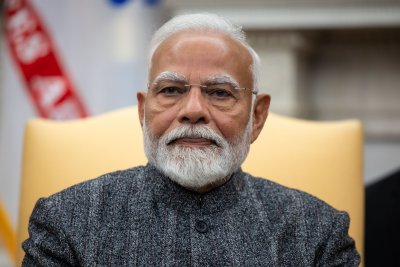
May 15 (UPI) — Indian security forces have killed 31 alleged Maoist rebels in what it Modi government officials called “the biggest-ever operation against Naxalism.”
The nearly three dozen accused rebels were killed during a 21-day operation in central India’s Kurraguttalu Hill region along the Chhattisgarh and Telangana state borders, Union Home Minister and Minister of Cooperation Shri Amit Shah said Wednesday in a statement on X.
“The mountain that was once ruled by red terror is now proudly flying the national flag,” Shah said.
Naxalism is a communist insurgency of oppressed peasants that was founded in 1967 against feudal landowners in Naxalbari, West Bengal. India has been fighting the insurgency ever since, and the government of Prime Minister Narendra Modi has vowed to be “Naxal-free” by March 31 of next year.
Shah said the Kurraguttalu Hill had served as a unified headquarters for several major Naxal organizations and was not only a training center “but also a site for Naxal strategy and weapons manufacturing.”
Eighteen military personnel were injured by improvised explosive devices during the operation, which took place between April 21 and Sunday, the government said in a release. Thirty-one bodies of uniformed Naxalites were recovered following the 21-day operation, including 16 females, with 28 so far identified, it said, adding that there were 21 “encounters” with Naxalites.
A total of 214 Naxal hideouts and bunkers were destroyed during the operation. Authorities also recovered 450 improvised explosive devices, 818 barrel grenade launcher shells, detonators, explosive materials and more than 26,450 pounds of food.
“Analysis of the information obtained during this historic 21-day-long anti-Naxal operation suggests that several senior Naxal cadres were either killed or seriously injured,” the government said.
Modi said in a statement that the operation proves their campaign to “eradicate Naxalism from its roots” was progressing as planned.
“We are fully committed to not only establishing peace in the Naxal-affected areas but also integrating them into the mainstream of development,” he said.